Freon is a refrigerant gas that is commonly used to ensure your car's air conditioner is working properly. But does Freon have any effect on the heat in your car? Let's take a look below.
Freon won't affect how the heat is produced in your car. The heat is produced by the engine and the coolant system. However, Freon can help to regulate the temperature in your car by making sure the air conditioning unit is working properly.
Understanding the role that Freon plays in your car can help you to keep it running smoothly. In this article, we will explain how Freon works in your car system. In addition, we will answer other frequently asked about your vehicle cooling and heating system, so read on!
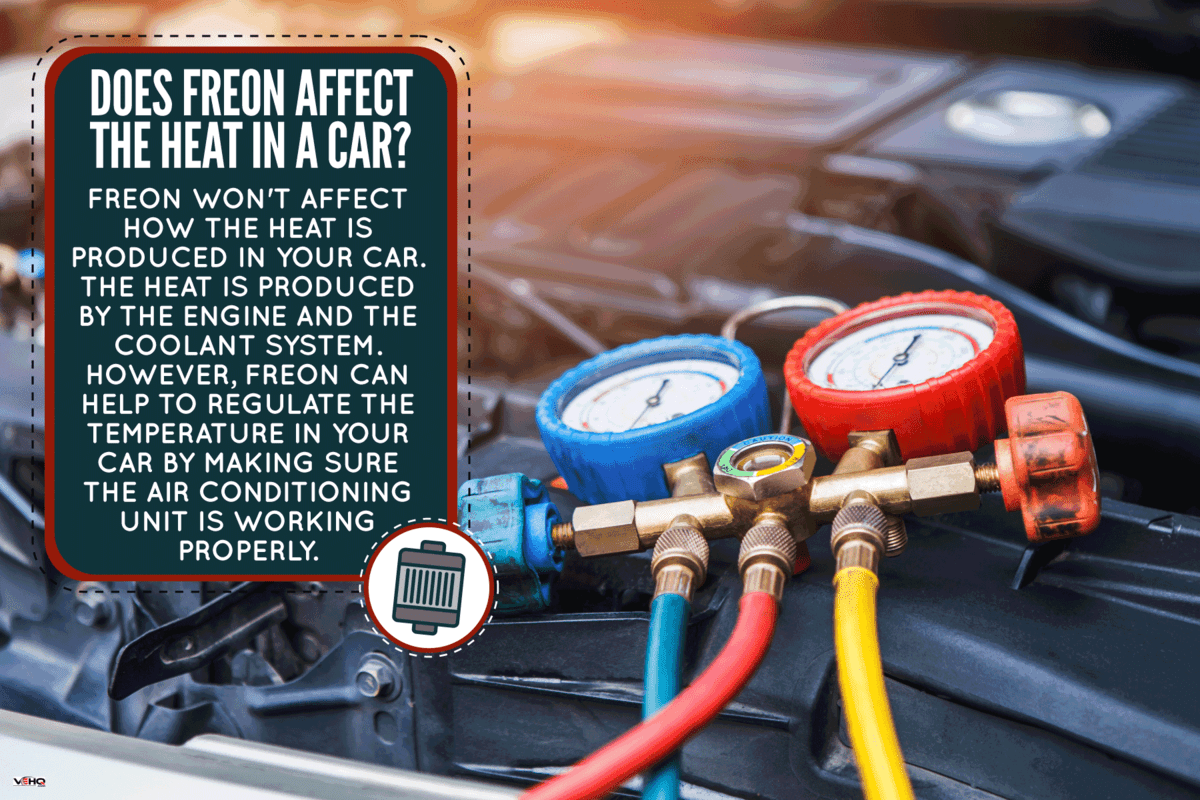
Can Low Freon Cause Heat Not To Work In A Car?
It's important to understand that Freon is actually a brand name for refrigerant gas known as R-12. This gas is used in your car's air conditioner to cool the air that comes into the cabin.
Freon won't have any effect on how the heat is produced in your vehicle. The heat is generated by the engine and the coolant system.
However, if your coolant or antifreeze levels are low, it can cause your car to overheat. This is because the coolant helps to regulate the temperature of the engine. So, if you're having trouble with your car's heating system, make sure to check the coolant levels first.
In addition, the heater works by sending hot coolant from the engine to the heater core. This is a small radiator located behind the dash.
If there is a problem with the coolant system, it can prevent the hot coolant from reaching the heater core. As a result, your car's heater won't work properly.
To sum it up, low Freon levels will not cause the heat to stop working in your car. However, if your refrigerant levels are low, it can prevent the air conditioner from working properly, while the low coolant levels can cause the engine to overheat.
If you are having issues with either the heater or air conditioner in your car, check the fluid levels. If you aren't sure what you're doing, consult with a professional mechanic or your owner's manual.
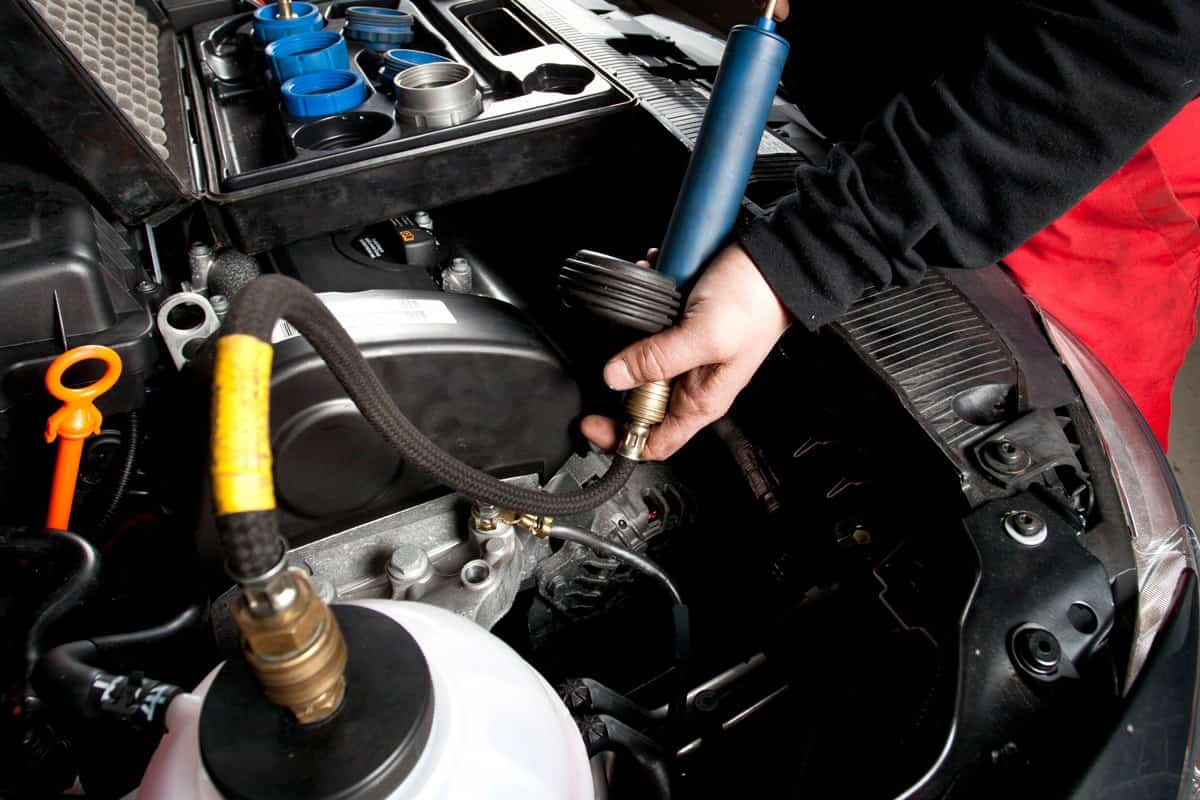
How Often Does Freon Need To Be Replaced In A Car?
As your car ages, the Freon will slowly leak out of the system. In most cases, you won't need to replace the Freon until there is a problem with the air conditioner.
With that said, you can usually make it five years without needing to top off the Freon in your car. If you do need to do it more often, then it's likely there is a leak in your system.
If you think there might be a problem with your air conditioner, it's best to take it to a professional mechanic. They will be able to diagnose the problem and determine if you need to add more Freon or if there is a bigger issue.
How Do You Know If You Need More Freon In A Car?
There are a few signs that you might need to add more Freon to your car. The most common is if the air conditioner isn't blowing as cold as it used to. In this case, you can check the Freon levels with a pressure gauge.
If the readings are low, then you will need to add more Freon. Another sign that you might need to add Freon is if there is ice buildup around the air conditioner coils. This can be caused by a number of different things but low refrigerant levels are one of them.
Another telltale sign is a clicking noise when you turn on the air conditioner. This means that the A/C clutch can't engage because there isn't enough Freon.
Last but not least, if you notice any leaks under your car, it's likely that your Freon levels are low. If you see a greenish-yellow fluid, that's a sure sign that you have a Freon leak.
If you notice any of these signs, it's best to take your car to a professional mechanic.
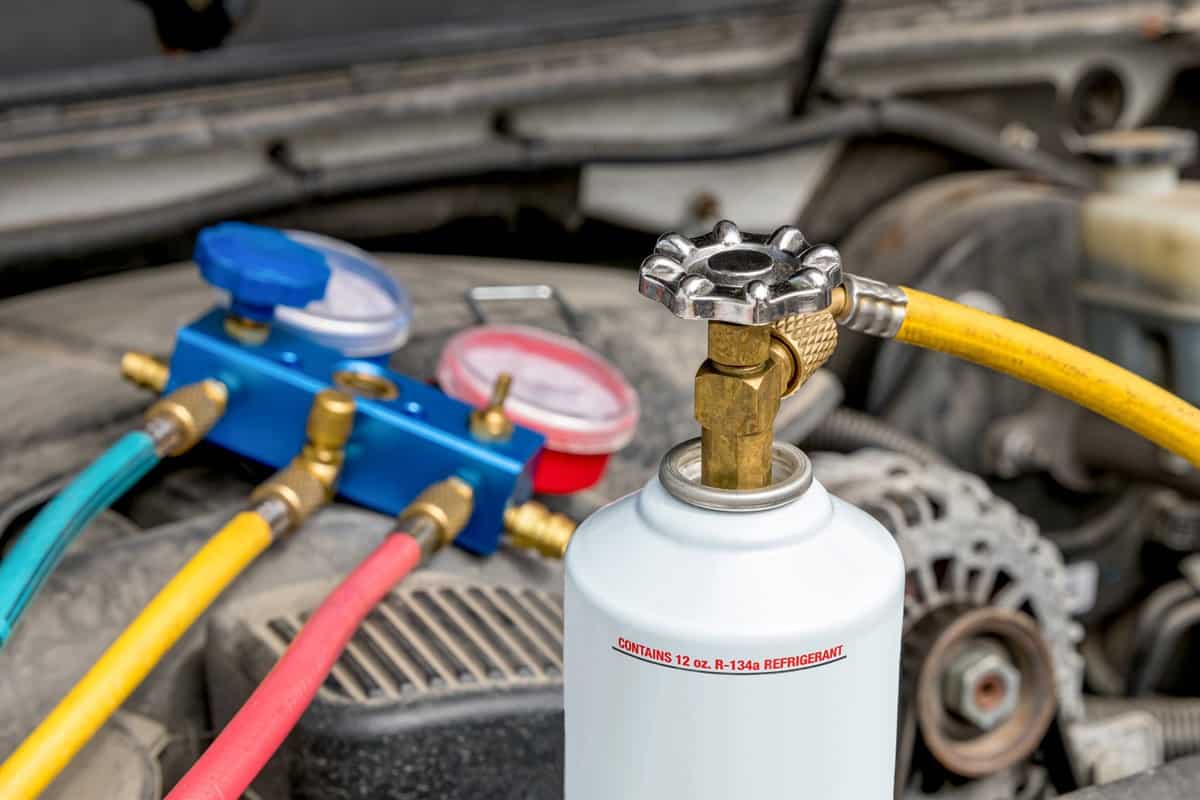
Why Is The Heater In My Car Blowing Cold Air?
If the heater in your car is greeting you with cold air, there could be a few different issues. Let's take a look at them below:
Low Coolant Levels
One of the biggest culprits of a heater blowing cold air is low coolant levels. Coolant is a mixture of water and antifreeze. It helps to keep the engine at a consistent temperature.
If there isn't enough coolant to circulate through the system, it can cause the engine to overheat. When this happens, the heater will blow cold air because the coolant isn't hot enough.
In this case, you can refill the coolant yourself. You can check your owner's manual to find out what kind of coolant to use and where to locate the coolant reservoir. Once you've found it, simply remove the cap and add more coolant until it reaches the full line.
You can also go to a quick lube place like Jiffy Lube, and they'll be able to top off the coolant for you.
Faulty Heater Core
Another reason the heater might be blowing cold air is because of a faulty heater core. The heater core is a small radiator-like device that's located under the dashboard. It contains hot coolant that's circulated through it to heat up the air.
If there is a problem with the coolant system, it can prevent the hot coolant from reaching the heater core. This will cause the heater to blow cold air.
So, if you check your coolant levels to find that they're fine, then it might be a good idea to take your car to a professional mechanic and have them check the heater core.
Faulty Thermostat
Like your home, your car has a thermostat that helps to regulate the engine's temperature. If the thermostat is faulty, it can cause the engine to overheat.
If you are driving your car to see if the engine temperature gauge is staying cold, this is a sure sign that your thermostat is stuck in the open position. This will cause the heater to blow cold air because the engine isn't getting hot enough.
Typically, vehicle thermostats are relatively easy and inexpensive to replace. However, it's always best to consult a professional mechanic before attempting any repairs on your own.
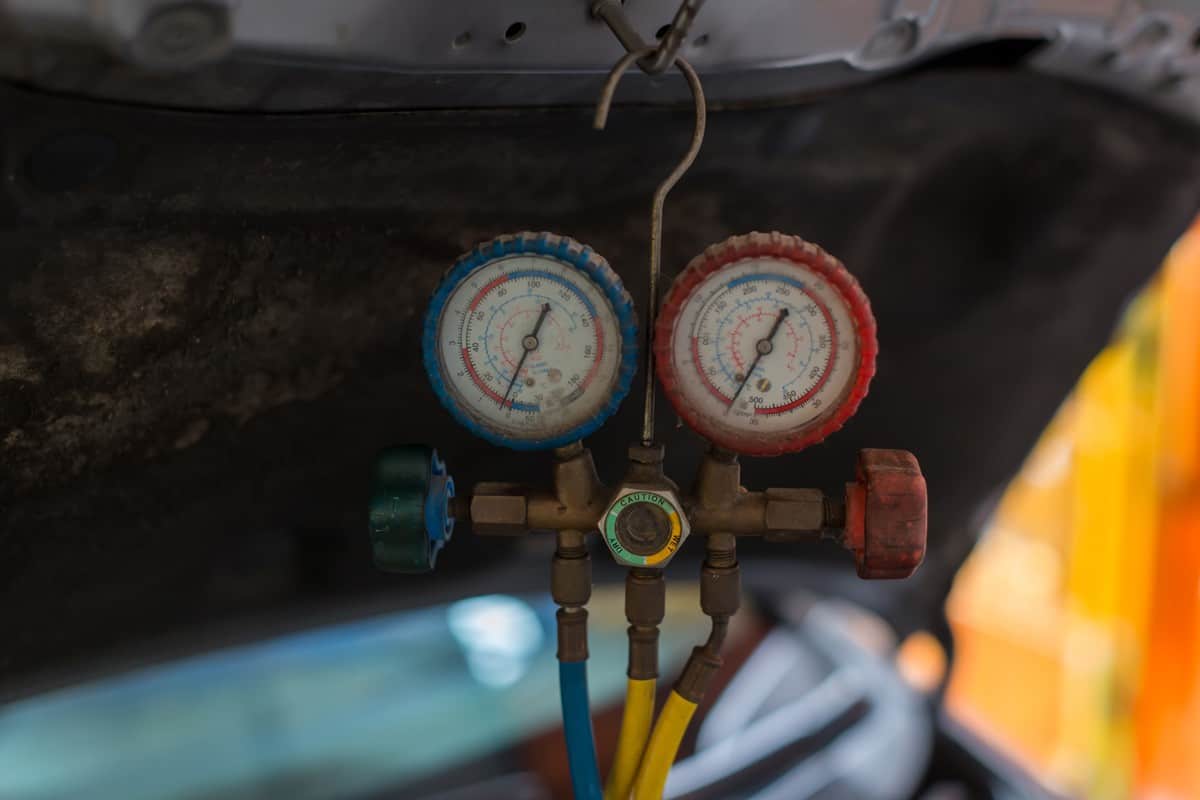
Bad Blower Motor
Another common issue that can cause the heater to blow cold air is a bad blower motor. The blower motor is responsible for circulating the hot coolant through the heater core and into the cabin.
If the motor is bad, it won't be able to circulate the hot coolant and therefore the heater will blow cold air. Replacing a blower motor can be a bit tricky. It's best to consult a professional mechanic to have this repair done.
Water Leaks
Water leaks within the water pump, radiator, or hoses can also cause the heater to blow cold air. If there is a water leak, it will cause the coolant level to drop. As we mentioned before, if the coolant level gets too low, it can cause the engine to overheat. When this happens, the heater will blow cold air.
It's best to take your car to a professional mechanic to have any water leaks repaired.
Contaminated Coolant
It is also possible that your coolant has become contaminated. This can happen if the transmission or motor oil comes into contact with the coolant. If this happens, it will cause the coolant to become less effective. As a result, the heater will blow cold air.
You'll need to have the contaminated coolant flushed from your system and replaced with a new coolant. This is best done by a professional mechanic. If you don't, your radiator or other engine parts could become corroded and fail.
How Much Does It Cost To Fix A Car Heater?
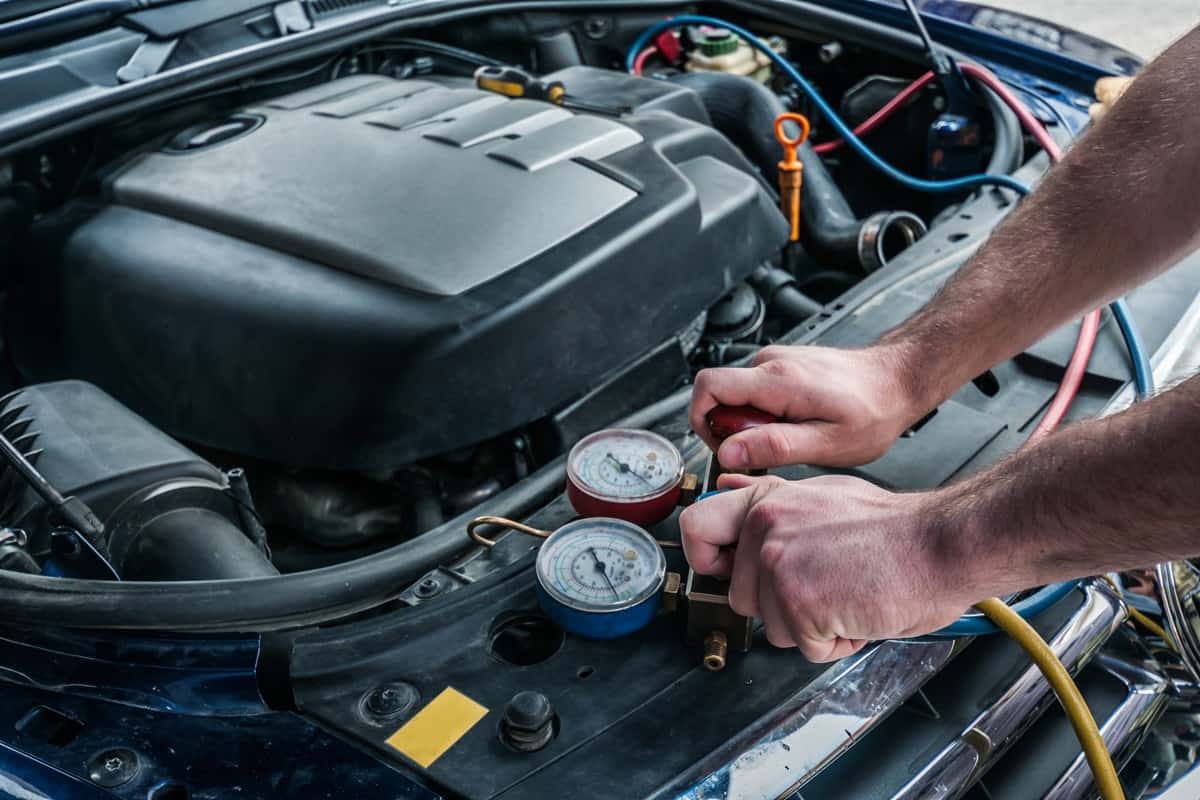
Depending on what is wrong with your car heater, the cost of parts and labor can vary. Nonetheless, you can expect to pay $150-1,000 on average.
For example, a car thermostat can only cost a couple hundred dollars. However, if your heater core needs to be replaced, the cost can jump up to $1,000 or more.
However, adding more coolant is relatively inexpensive and can be done yourself. If you want to troubleshoot yourself, then start with the coolant levels and go from there.
If coolant levels are fine, it's time to take your car to a mechanic. You don't want your engine to overheat and cause more extensive (and expensive) damage.
Final Thoughts
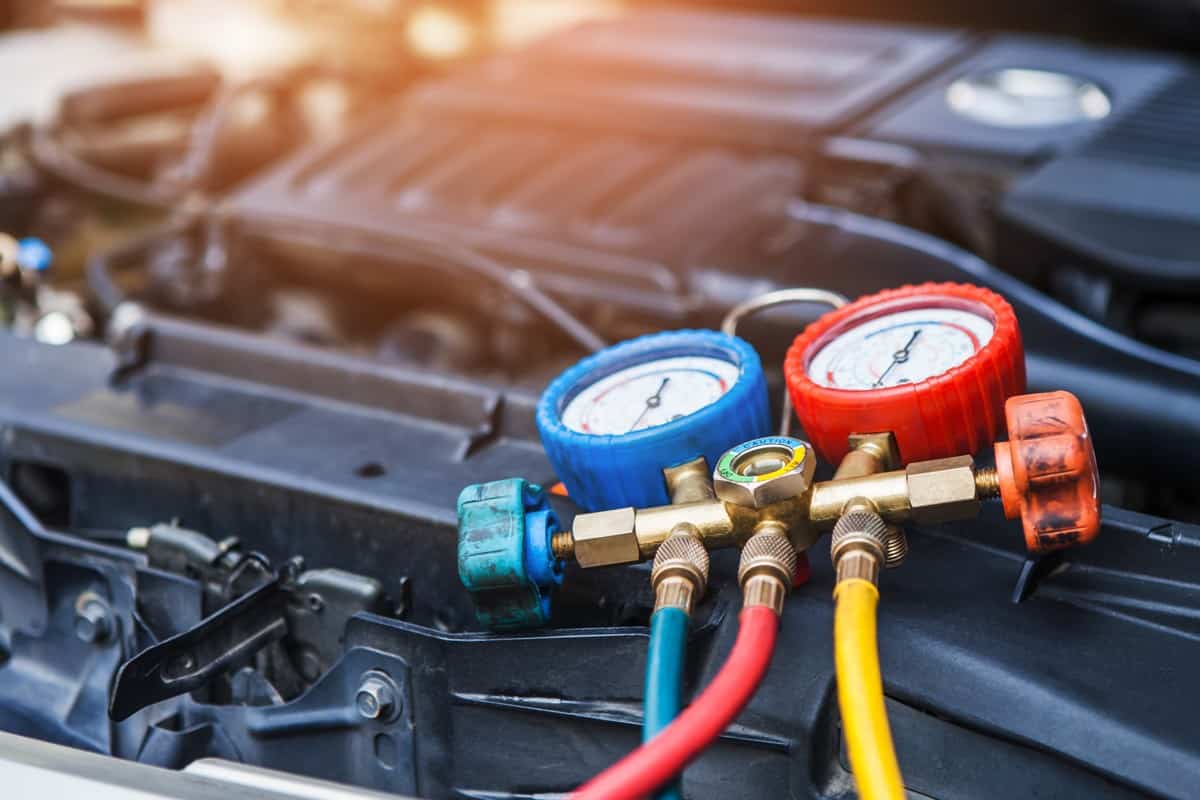
While it can be confusing, Freon and coolant are two different things. Freon is used in AC units, and coolant is used in car engines. By understanding the difference, you can be sure to use the right product for each application.
Made it to the end? Here are other articles you might enjoy:
Why Is My Freon Gauge In The Red – What To Do?
